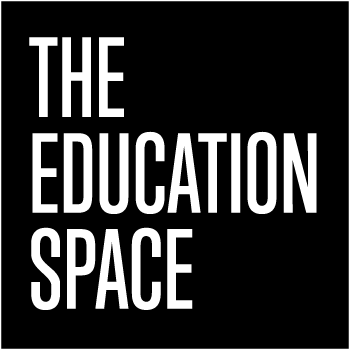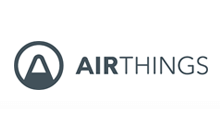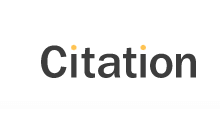How do we help children access that part of their brain
 The technological revolution is changing our world faster than anyone in our society can really understand, and within this mass shift there are a few statistics that really should be getting more attention in our education system.
The technological revolution is changing our world faster than anyone in our society can really understand, and within this mass shift there are a few statistics that really should be getting more attention in our education system.
20% of the jobs that exist now will not be available to children in reception now when they leave school. Likewise in 2015 the Bank of England found that up to 15 million jobs in the UK economy were at risk of getting phased out and replaced by automation, and in 2017 the McKinsey Global Institute reported that 800 million low-skilled jobs worldwide will go by 2030.
We can already see it happen in our factories, in our manufacturing industries, and in our supermarkets. Low-skilled jobs are extremely vulnerable to automation, and something is going to have to plug that gap in the jobs market for our school leavers. Our education system is going to have to step up and up-skill those individuals who otherwise might have ended up behind a till or on a factory line.
At the Education Space we like to see this massive jobs market change as a opportunity to do better, and offer more of our students brighter, stimulating futures. Surely if education was as effective as it could be and more inspiring, less of the population would end up sliding into jobs that can be replaced by a robot, a bit of code or an automated check-out.
Over human history, technology has created more jobs than it has replaced – and the information economy boom over the last few years has created whole new ways of making money and thriving in a technological age. In 2019 anyone with a smartphone and a passion can create a content creation business, they can access online university courses, they can learn a new trade off YouTube.
All the exciting new digital age jobs and opportunities have one thing at their core – creativity, and the ability to think creatively. Sometimes the word ‘creativity’ brings to mind art classes, penniless writers and artistic indulgence. Or creativity might feel like a luxury or something just for the few, rather than a core aspect of human potential.
This odd stereotype massively undermines the value that creativity and creative thinking have for a wide range of careers and skills. Engineering requires creative thinking. Ground-breaking scientific research involves creative thinking. Also, a large number of the most exciting job opportunities on offer for youth generations today come from innovators who are creating their own niche by looking creatively at established systems and coming up with disruptive business plans.
Children who are in school right now are already having to complete their education fully in the knowledge that no one can tell them what kind of world they will be met with once it’s done. In an unpredictable, rapidly changing world students have to be ready to identify and go after their own opportunities. Students are going to need resilience, independent thinking, and dynamic action to respond to what they find when they enter the workforce.
This is exactly what we should be nurturing at school. Creative jobs are going to be around for a long time – and we are missing our chance to help kids access creative thinking, and the resilience that comes with it.
Our notoriously exams-focused education system is a big part of the problem. In primary school, accessing your creativity is not a problem. A 5-year-old has no issues drawing for the sake of drawing, or shaping some clay to see what comes out. As our students progress to secondary and sixth form, the relentless pressure of being taught to exams drains this creative joy and confidence away. Our obsession with results tells our students that they’re only as good as exams say they are, and that their futures are decided the age of 18 by a bunch of certificates future employers will rarely ask to see.
We think this is a huge shame, and a missed opportunity. Education could be a time in your life where instead of being pigeon-holed and relentlessly examined, you’re gaining a better understanding of who you are, and what you could be good at. Schools could be a fantastic environment for real self-development, and developing the resilience that you really need to thrive in an uncertain future.
The Education Space works with a few schools who are leading the way on creativity in the classroom. Sandringham and Scott Wilkie are two primary schools we regularly work with who have made inspiring efforts to bring creativity into the look and feel of their classrooms and their lesson content. We’re seeing massive signs of encouragement in schools that are embracing future technologies, and giving their students access to tech and inspiration. Watch a room full of students learning to make stop motion animation, or how to use music production software, or engaging with VR headsets – and you will feel that buzzing energy of a room full of inspired students having their minds stimulated and becoming familiar with the tech of the future.
So when we lose those 6 million low skilled jobs over the next decade – let’s prepare our schoolkids to create their own opportunities. People understand from a much younger age now about the effect they’re going to have on the world – we should be supporting them to really think about the kind of impact they want to achieve when they leave school.
We believe that as educators we can deliver something that students will really want to be a part of. We need children to know their worth is not defined by exams. We need to open doors to let them feel like they can make a success out of their lives through following their passions and training their minds, and give them access to the dynamic, resilient thinking that comes with creativity.
It’s time to start reverse engineering what we as adults know gets you ahead into the real world, back into our schools. Concepts like self-development, personal confidence, innovative thinking, transferable skills, creative expression, conviction in your ideas and determination to follow them through.
If the future is creativity - our students need this side of themselves to be nurtured at school right now.




